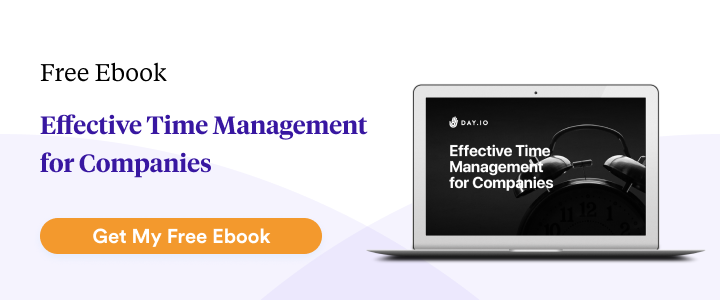However you choose to twist it, employees come to work for one primary reason: to receive compensation for their time, effort and skill.
The relationship between employer and employee is one that is built on trust. The employer trusts that the employee will show up and do the job they were hired to do. The employee, in turn, trusts that the employer will provide them with the agreed-upon compensation in a timely manner.
Although this concept may seem very simple, it forms the basis of all employment relationships.
Unfortunately, there are many times when this basic agreement is not honored appropriately.
Employees may feel they are not being paid enough, or that their compensation is not fair when compared to others in the organization. Employers, on the other hand, may find themselves struggling to keep up with the rising costs of employee compensation.
In order for an organization to be successful, it is essential that both employers and employees feel that they are being compensated fairly and in line with the value they are providing to either party. This is where compensation management comes in.
In this article, we will discuss compensation management in further detail, and explore the importance of getting it right in order to ensure organizational success. We will also go through some top tips for optimal compensation management which you can implement within your own firm.
Let’s get started!
What Is Compensation Management?
Compensation management is the process of planning, administering and reviewing employee compensation programs in order to ensure they are fair, competitive and aligned with the organization’s overall business strategy.
It involves making decisions about what type of compensation to offer (e.g. salary, bonuses, commission, etc.), how much to offer, and how often payments should be made.
Compensation management also includes ensuring that employees are aware of the organization’s compensation policies and procedures, and understand how their individual compensation package fits into the bigger picture.
In order for compensation management to be effective, it must take into account both the organization’s needs and the employees’ expectations. After all, employee satisfaction is essential for organizational success.
There are a number of different factors to consider when planning and administering employee compensation programs. These include:
- The organization’s overall business strategy: What are the organization’s goals and objectives? How can employee compensation programs be aligned with these?
- The labor market: What is the going rate for the type of position you are looking to fill? Are there any specific skills or experience that would warrant a higher (or lower) salary?
- The organization’s budget: How much can the organization afford to spend on employee compensation? This will likely be influenced by the organization’s overall profitability.
- Employee expectations: What do employees expect to be paid? This will vary depending on the individual, but may be influenced by their current salary, the salaries of others in similar positions, and their skills and experience.
Once you have considered all of these factors, you can start to put together a compensation plan that meets the needs of both the organization and its employees.
5 Reasons Compensation Management Is Important To Organizational Success
There are many reasons why compensation management is important to organizational success. Here are five of the most important:
1. Employee satisfaction
As we mentioned earlier, employees come to work expecting to be compensated fairly for their time and effort.
If they feel that they are not being paid enough, or that their compensation is not in line with the value they are providing to the organization, this can quickly lead to dissatisfaction.
Imagine if your employees were constantly thinking about how underpaid they are. Would they be able to give their best performance?
2. Attracting and retaining top talent
In order to be successful, organizations need to attract and retain the best employees. This is becoming increasingly difficult in today’s competitive job market.
One of the key ways to differentiate your organization from others is by offering a competitive compensation package.
If you can’t offer a high salary, there are other benefits and perks that you can offer which will make your organization more attractive to prospective employees.

3. Improved performance
Employees who feel they are being fairly compensated are more likely to be motivated and perform at a higher level. This is because they feel valued by the organization and are therefore more invested in its success.
On the other hand, employees who feel undervalued or that their compensation is not fair are more likely to be disengaged and less productive.
4. Reduced turnover
Employee turnover can be costly for organizations. Not only do you have to find and train replacements, but you also lose the knowledge, skills and experience of your departing employees.
By offering a competitive compensation package, you can reduce turnover and keep your best employees happy and engaged.
5. Enhanced reputation
An organization’s reputation is important for a number of reasons. It can influence everything from customer satisfaction to employee recruitment.
If your organization has a reputation for being fair and generous with compensation, this will only enhance your reputation further.
There are a number of other benefits that can be gained from effective compensation management, but we feel these five are the most important. As you can see, getting it right is essential for organizational success.
Top Tips For Optimal Compensation Management
Now that we’ve gone through the importance of compensation management in organizational success, let’s delve deeper into some tips for optimal compensation management.
Get buy-in from employees
In order for compensation management to be successful, it is essential that you have the buy-in from employees. Be open and transparent about how decisions are being made, and allow employees to provide input on what they feel is fair.
Consider all forms of compensation
It’s not just about salaries! When thinking about compensation, also consider things like bonuses, stock options, benefits and other perks which can make a big difference to employee satisfaction.
Conduct regular reviews
Don’t set it and forget it. Regularly review your compensation management strategy to ensure that it is still fair and in line with the organization’s goals.
Be data-driven
When making decisions about compensation, be sure to base them on data rather than gut feeling. Use market analysis and surveys to inform your decisions, so that you can be confident you are making the right choices.
Communicate, communicate, communicate
Last but not least, communication is key when it comes to compensation management. Be sure to keep employees updated on any changes, and provide clear explanations for why certain decisions have been made.
Keeping your employees out of the loop will only lead to your employees being disgruntled at the lack of respect shown.
With the right approach, compensation management can be a powerful tool to help you achieve organizational success. By following the tips above, you can be sure that you are on the right track to fair and effective compensation practices within your firm.
Compensation Management Frameworks
If you’re unsure of where to start with compensation management, here are some of the most common frameworks you can use within your own company.
1. Internal equity
This framework focuses on ensuring that employees are compensated fairly in relation to others who are performing similar roles within the organization.
This can be a difficult task, as it requires accurate job descriptions and up-to-date market data for comparison purposes.
For example, if two employees are performing the same job but one is being paid $10,000 more than the other, this would create an issue of internal equity.
2. External competitiveness
This structure takes into account the compensation practices of other organizations in order to ensure that your company is able to attract and retain top talent.
It is important to note that you should only compare your organization to others who are in a similar industry, as compensation varies greatly between sectors.
For example, the average salary for a software engineer working in Silicon Valley will be much higher than someone performing the same job in a small town in Iowa.
3. Individual performance
This looks at the link between an individual’s compensation to their performance, and judges the level of compensation on this basis.
It may sound simple, but can be a difficult task to manage as it requires accurate goal setting and regular performance evaluations.
However, when done correctly, this type of compensation can be very motivating for employees and lead to increased productivity.

4. Organizational results
When your firm does well, it makes sense to compensate your employees as they have played a part in its success.
This framework looks at precisely that – by tying an organization’s compensation practices to its overall results.
If a company is meeting its quarterly financial targets, then employees may receive bonuses or other types of financial rewards.
Along with being a fair method for compensating employees, this type of compensation has the additional benefit of motivating employees to work towards the success of the organization as a whole. If the firm wins — they win!
5. Job satisfaction
This looks at an employee’s level of satisfaction with their job in order to determine their compensation.
This can be difficult to measure, but there are a number of surveys and other tools that can be used to gather this data. When job satisfaction is taken into account, it can lead to more engaged and productive employees.
Final Thoughts
Compensation management is a critical part of any organization’s success. Now that we’ve understood what it means, and why it’s so important to organizational success, we can figure out how to apply it to our own firms.
By understanding the different frameworks that are available, and implementing them in a way that works best for your company, you can ensure that your employees are motivated and engaged in their work.
In turn, this will lead to increased productivity and overall success for your organization.
